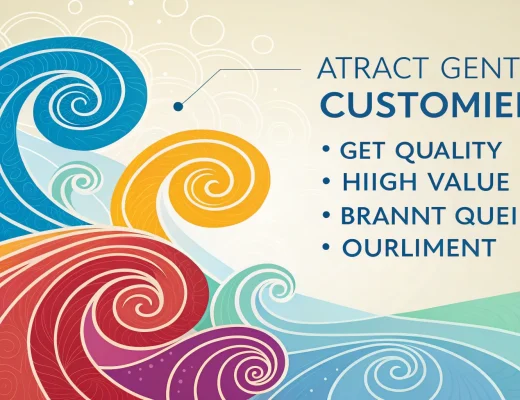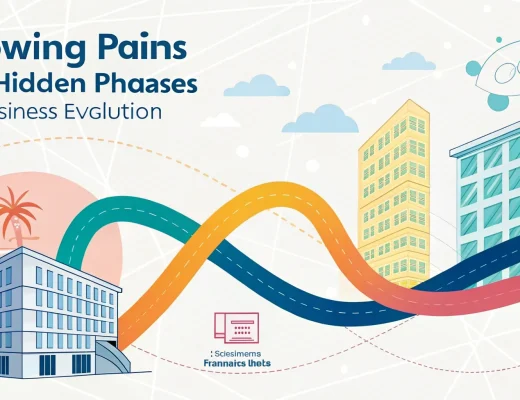Key Takeaways
- Always read the lease carefully to understand all terms and conditions.
- Research market trends to negotiate better lease terms.
- Consult a lawyer to clarify any confusing language in the lease.
- Keep track of your lease obligations to avoid surprises later.
- Build a good relationship with your landlord for smoother negotiations.
Key Components of a Commercial Lease Agreement
 When I think about a commercial lease, I realize that understanding the key components is essential for both tenants and landlords. A well-structured lease can save you from future headaches. Here are the main parts I focus on:
When I think about a commercial lease, I realize that understanding the key components is essential for both tenants and landlords. A well-structured lease can save you from future headaches. Here are the main parts I focus on:
Understanding Lease Terms and Clauses
Every lease has specific terms and clauses that outline the agreement. Here’s what I usually look for:- Basic Information: This includes the names of the landlord and tenant, the property address, and the intended use of the space.
- Lease Duration: Knowing the start and end dates of the lease is crucial. I also check for renewal options to avoid surprises later.
- Rent Structure: I pay attention to how the rent is calculated and if there are any escalation clauses that might increase costs over time.
Identifying Essential Lease Provisions
It’s important to identify the essential provisions that protect both parties. Here are some key points:- Maintenance Responsibilities: Who is responsible for repairs? This can prevent disputes down the line.
- Insurance Requirements: I always check what types of insurance are needed to protect against potential risks.
- Zoning Restrictions: Understanding how the property can be used is vital to avoid legal issues.
Common Pitfalls in Lease Agreements
I’ve seen many people overlook important details. Here are some common pitfalls:- Ignoring Rent Increases: Not negotiating how often rent can increase can lead to unexpected costs.
- Vague Terms: Ambiguous language can create confusion. I make sure everything is clear and specific.
- Not Seeking Legal Advice: It’s wise to consult with a lawyer to ensure the lease protects my interests.
A solid lease agreement is like a safety net; it protects your business and investment.By focusing on these key components, I can navigate the complexities of commercial leases more effectively. Understanding these elements not only helps in negotiations but also ensures a smoother relationship between tenants and landlords. Remember, a well-informed approach can lead to better outcomes for everyone involved!
Effective Strategies for Negotiating Lease Terms
 Negotiating a commercial lease can feel overwhelming, but with the right strategies, I can make it work in my favor. Understanding the key tactics can help me secure better terms.
Negotiating a commercial lease can feel overwhelming, but with the right strategies, I can make it work in my favor. Understanding the key tactics can help me secure better terms.
Preparing for Lease Negotiations
Before diving into negotiations, I need to prepare thoroughly. Here are some steps I take:- Research the Market: Knowing the average lease rates in my area helps me understand what’s reasonable.
- Define My Needs: I list what I absolutely need in a space versus what would be nice to have.
- Set a Budget: I determine how much I can afford, including potential increases in rent.
Leveraging Market Research
Using market research gives me an edge. I can:- Compare similar properties to see what they offer.
- Identify trends that might affect my lease terms, like rising demand or new developments.
- Use this information to negotiate better terms, showing the landlord I’m informed.
Handling Counteroffers and Impasses
Negotiations often involve back-and-forth discussions. Here’s how I handle counteroffers:- Analyze Each Offer: I carefully look at what the landlord proposes and see how it fits my needs.
- Identify Deal-Breakers: I know my non-negotiables—terms that I can’t compromise on.
- Be Ready to Walk Away: If the deal doesn’t meet my needs, I’m prepared to look elsewhere.
By being well-prepared and flexible, I can navigate negotiations more effectively and find a lease that works for me.In summary, effective negotiation strategies can lead to a lease that not only meets my needs but also saves me money in the long run. I should always remember that careful planning and research are key to avoiding costly mistakes in my lease agreements.
Legal Considerations in Commercial Leases
When it comes to commercial leases, understanding the legal aspects is crucial. I always recommend consulting with a lawyer to navigate the complexities involved. Here are some key areas to focus on:Consulting with Legal Counsel
- Get Professional Help: Always involve a lawyer who specializes in commercial leases. They can help you understand the terms and protect your interests.
- Review the Lease: A lawyer can spot potential issues that you might miss, ensuring you don’t face unexpected costs later.
- Negotiate Terms: They can assist in negotiating terms that are favorable for you.
Ensuring Compliance with Local Laws
- Know Your Responsibilities: It’s important to understand who is responsible for keeping the property compliant with local, state, and federal laws.
- Zoning Restrictions: Make sure the property can be used for your intended purpose, as some areas have specific zoning laws.
- Regular Updates: Laws can change, so stay informed about any updates that might affect your lease.
Addressing Ambiguous Language and Terms
- Clarify Terms: If any part of the lease is unclear, ask for clarification. Ambiguous language can lead to disputes later.
- Dispute Resolution: Understand how disputes will be handled. Are there provisions for mediation or arbitration?
- Governing Law: Know which state’s laws will apply in case of a disagreement.
Understanding the legal aspects of a commercial lease can save you from future headaches. Always take the time to review and clarify any uncertainties before signing.By focusing on these legal considerations, you can ensure that your commercial lease is not only fair but also protects your interests in the long run. Remember, a well-informed tenant is a successful tenant!
Financial Aspects of Commercial Leases
When it comes to commercial leases, understanding the financial aspects is crucial. Rent can be one of your biggest business expenses. Here are some key areas to focus on:Understanding Rent and Escalation Clauses
- Base Rent: This is the initial amount you agree to pay, either monthly or annually.
- Rent Escalation: This clause explains how and when your rent might increase over time. It’s important to know this to avoid surprises.
- Common Area Maintenance (CAM) Charges: These are costs for shared spaces like hallways and restrooms. Make sure you understand how these charges are calculated.
Managing Common Area Maintenance Charges
- Know What’s Included: Check what services are covered under CAM charges. This can include cleaning, landscaping, and repairs.
- Review Regularly: Keep an eye on these charges to ensure they don’t increase unexpectedly.
- Negotiate: Don’t hesitate to discuss these charges with your landlord to find a fair agreement.
Security Deposits and Financial Guarantees
- Security Deposit: This is usually required upfront to cover potential damages. Understand how much you need to pay and the conditions for its return.
- Financial Guarantees: Sometimes, landlords may ask for personal guarantees. This means you’re personally responsible if the business can’t pay the rent.
- Discuss Terms: Make sure to clarify the terms of any guarantees to avoid future issues.
Understanding these financial aspects can help you avoid pitfalls and ensure a smoother leasing experience.In summary, being aware of the financial components of a commercial lease can save you from unexpected costs and help you make informed decisions. Remember, more than $1 trillion in commercial real estate loans will come due, so it’s essential to be prepared!
Post-Negotiation Lease Management
 After signing a lease, the work isn’t over. Managing your lease effectively is crucial for a smooth experience. Here are some key strategies I follow:
After signing a lease, the work isn’t over. Managing your lease effectively is crucial for a smooth experience. Here are some key strategies I follow:
Monitoring Lease Obligations
- Stay on top of key dates: Use reminders for renewal options and expiration dates.
- Review your responsibilities: Make sure you know what maintenance and repairs you need to handle.
- Document everything: Keep records of communications and repairs to avoid disputes later.
Handling Lease Renewals and Extensions
- Start early: Begin discussions about renewals at least six months before the lease ends.
- Negotiate terms: Don’t hesitate to ask for better conditions based on your business’s performance.
- Consider market trends: Research current market rates to ensure you’re getting a fair deal.
Addressing Disputes and Modifications
- Communicate openly: If issues arise, talk to your landlord right away to find solutions.
- Know your rights: Familiarize yourself with the lease terms to understand your position.
- Seek legal advice if needed: If disputes escalate, consulting a lawyer can help protect your interests.
By actively managing your lease agreement post-negotiation, you can ensure a smooth and productive tenancy. This proactive approach can save you from unexpected challenges.In summary, effective post-negotiation lease management is about staying organized, communicating well, and being prepared for changes. It’s all about making sure your lease works for you!
Best Practices for Tenant and Landlord Collaboration

Building a Positive Landlord-Tenant Relationship
Creating a strong relationship with your landlord is key. Open communication can help both parties feel comfortable discussing issues. Here are some tips:- Be respectful and professional in all interactions.
- Share your business goals and how the space fits into them.
- Regularly check in to discuss any concerns or updates.
Effective Communication Strategies
Good communication can prevent misunderstandings. I find that using clear and simple language helps. Here are some strategies:- Listen actively to your landlord’s concerns.
- Use emails or meetings to clarify important points.
- Document agreements to avoid confusion later.
Negotiating Favorable Lease Renewal Options
When it comes time to renew your lease, it’s important to negotiate terms that work for both sides. Here’s how:- Start discussions early to avoid last-minute stress.
- Be open to compromises that benefit both parties.
- Consider market trends to support your requests.
By focusing on collaboration, both tenants and landlords can create a positive environment that benefits everyone involved.In summary, building a good relationship, communicating effectively, and negotiating wisely can lead to a successful partnership. Remember, a happy landlord often means a happy tenant!
Conclusion
Negotiating a commercial lease can seem tough, but it’s really important for your business. A good lease can help your business grow and save you money in the long run. It’s not just about getting the lowest price; it’s about making sure the lease fits your needs. Take your time to understand what you want and don’t be afraid to ask for changes. Remember, having a solid lease can protect your business and give you peace of mind. So, use the tips and strategies from this guide to help you in your negotiations. Good luck!Frequently Asked Questions
What is a commercial lease?
A commercial lease is a contract between a landlord and a business that allows the business to use a space for work or services.
What should I look for in a commercial lease?
You should check the rent amount, lease duration, renewal options, and any extra costs like maintenance fees.
Can I negotiate my lease terms?
Yes, most lease terms can be negotiated. It’s important to discuss any terms that don’t work for you.
What happens if I need to break my lease?
If you need to break your lease, you may have to pay a penalty or find someone to take over your lease.
How do I know if a lease is fair?
Research similar properties in the area to compare prices and terms. Consulting a real estate expert can also help.
What should I do if I have a dispute with my landlord?
Try to resolve it directly with your landlord first. If that doesn’t work, you may need legal help or mediation.







